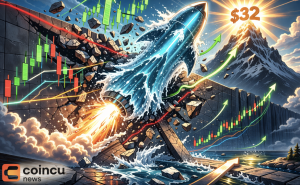A digital asset custodian is a trusted individual or organization that is responsible for safeguarding valuable assets on behalf of an investor or client. In the context of blockchain and cryptocurrencies, the primary task of a custodian is to ensure the safe and secure storage of digital assets such as Bitcoin (BTC) and Ethereum (ETH).
Unlike traditional assets like physical cash or stocks, digital assets are stored electronically and require advanced security measures and internal controls to protect them from theft, loss, or unauthorized access. Digital assets, being based on cryptographic technology, come with their own unique set of risks.
One of the key risks associated with digital assets is the potential loss of private keys. A private key is a secret code that grants access to the ownership and transfer of digital assets. If an individual loses their private key, they will lose access to their digital assets indefinitely. This presents a significant long-term risk, as the assets cannot be recovered without the private key.
Given the complexities and risks involved in managing and storing digital assets, many institutions, including banks, financial institutions, and cryptocurrency exchanges, choose to appoint a third-party custodian to handle these responsibilities. Digital asset custodians have the expertise and infrastructure to implement robust security measures and safeguards to protect clients’ assets.
To ensure that digital asset custodians meet industry standards and provide adequate protection for clients’ assets, many jurisdictions require custodians to obtain licenses from regulatory bodies. These licenses establish guidelines and requirements for custodial services and help maintain investor confidence in the security of their digital assets.
One example of a licensed digital asset custodian is Coinbase Custody. Coinbase is a well-known cryptocurrency exchange, and Coinbase Custody is a separate entity within the Coinbase ecosystem that focuses on providing institutional-grade custodial services. As a regulated custodian, Coinbase Custody adheres to strict security protocols and controls to protect client assets from theft or loss.
It’s important to note that digital asset custodians play a crucial role in the overall infrastructure and adoption of cryptocurrencies. Their services cater to institutional investors and high-net-worth individuals who may have large holdings of digital assets and require enhanced security measures to protect their investments.
The president of investment banking and digital assets at The Brooker Group, Varit Bulakul, highlights the importance of digital asset custodianship. With his background in auditing and finance, Varit brings extensive knowledge of the security and regulatory aspects of managing digital assets. The Brooker Group, a publicly listed financial consultancy and capital management company based in Thailand, understands the need for robust custodial services in the rapidly evolving blockchain industry.
To summarize, a digital asset custodian is a trusted entity responsible for the secure storage and protection of digital assets on behalf of clients. They employ advanced security measures and adhere to regulatory standards to ensure the safety of these assets. The rise of digital asset custodianship is a significant development in the blockchain and cryptocurrency ecosystem, providing institutional investors and individuals with peace of mind and fostering broader adoption of digital assets.














